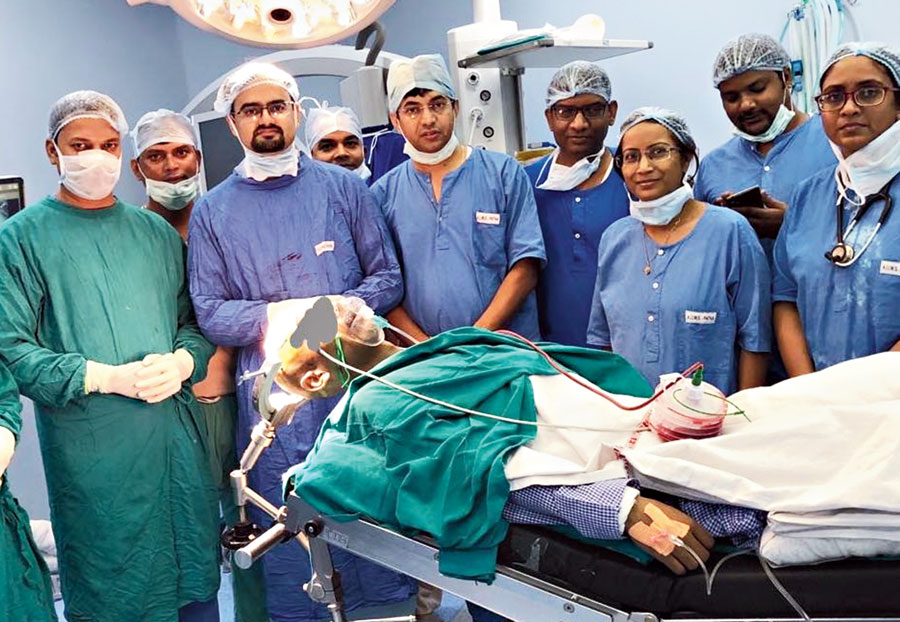A 21-year-old was asked to identify a mobile phone and a pen besides being asked to follow other instructions while surgeons were operating on his brain.
Rohit Kumar from Muzaffarpur was also asked to keep moving his right hand and right leg during the surgery, which was done at the All India Institute of Medical Sciences (AIIMS) Patna on September 21.
AIIMS Patna neurosurgeon Dr Saquib Azad Siddiqui said the operation on Rohit was the first awake craniotomy surgery in any government set-up in the state.
Awake craniotomy is performed in the same manner as a normal surgery, except that the patient is awake through the entire process.
“During Rohit’s surgery, only the scalp’s skin was anaesthetised unlike the usual brain surgery in which general anaesthesia is given to the patient so that he or she becomes unconscious,” Siddiqui explained. “We opt to do awake brain surgery in cases in which we know that if surgery is performed in that portion it can affect movement of the body. In this case, the patient’s tumour was located in the left part of the brain which controls language and the right hand and right leg movements. This is why when we were removing the tumour from his brain during the surgery, we ensured that patient’s right hand and leg movements were on so that we could get real-time feedback that we were not damaging any part of the brain.”
He added: “In simple language you can say that this type of surgery lowers the risk of damage to the functional areas of brain that can affect vision, movement or speech.”

The AIIMS-Patna team with the patient, Rohit Kumar from Muzaffarpur. Telegraph picture
The patient in such a surgery is primed before the operation about what questions would be asked to him during the surgery.
Asked about the expertise required for performing this type of surgery, Siddiqui said: “A trained anaesthetist is required for such surgeries. In this period, the patient is on the operation table without any pain for a long period and he/she is speaking to the surgeon and following his/her instructions. The anaesthesia blocks should be very good. The anaesthetist blocks only the scalp area by administering local anaesthesia — which is very difficult and not all anaesthetists can do this.
“The whole procedure takes around four hours time. We have Dr Ajeet Kumar, who was earlier working with AIIMS Delhi and has assisted in such kind of surgeries there. Dr Ajeet and Dr Poonam Kumari were the anaesthetists in this surgery,” added Siddiqui.
An experienced neurosurgeon is also a must for such surgeries. “The neurosurgeon also has be experienced so that the surgery is done safely and also quickly. Only an experienced neurosurgeon can take care of all these things. I have assisted in such surgeries during my `M.ch` course at AIMS Delhi,” said Siddiqui.
Rohit was diagnosed with brain tumour three months ago.
“The tumour was 4cm in length,” Siddiqui said. “The patient was suffering from headache and seizures very often due to this.”
Rohit would be discharged from the hospital after two days, Siddiqui said.










